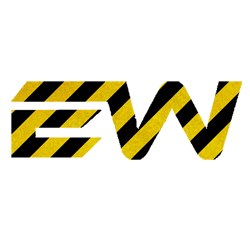Productivity Hacks for Engineers | Making Life Easier
An engineers day is hectic, without a doubt. Meetings clutter your calendar, errands heap up on your schedule and due dates approach rapidly. Few in the engineering field accomplish work-life balance. Still, managers and customers ask you to work faster. With mounting pressure, how can an engineer make the most out of a workday? There are a few functional techniques that engineers (and different experts) can use to streamline efficiency.
You have to Work Harder at Working Smarter
First focus on knowing your strengths and weaknesses, then you've to work harder to be better and better in something that is really valuable. The more time you invest in training yourself, the more success you’ ll have. Don't forget teamwork, learn your position within the team, and rely on your teammates while doing your best job. Working smarter means using efficiently your main skills to achieve more goals, for example a sales engineer must know how to present solutions to support the buyer's vision and solve as many of the buyer's pains points as possible.
Automate Difficult Assignments
Use your computer’s built-in automation software to eliminate pointless assignments. Consistently, you perform tedious computer tasks that can be automated to spare time. Macintosh users have Automator. This program accompanies many simple activities like extracting data from web pages, combining and watermarking PDF pages, and instantly retrieving a word’s definition. Advanced users can program custom activities, giving you a chance to make the greatest number of automated tasks as you can envision. Windows users have Task Scheduler, a comparable program that schedules automated activities, disposing of excess work over the long run.
Optimize According to Your Circadian Rhythm
Work on difficult technical projects in the morning, easier tasks in the afternoon, and creative endeavors at night. By and large, you perform best in the late morning and most exceedingly terrible amongst twelve and 4 pm, as per a psychological study from Pennsylvania State University. Research at Albion College recommends that night is the best time to to solve problems that require open-ended thinking.
Take Regular Breaks With Your Colleagues
Work for 52 minutes and enjoy a social reprieve for 17 minutes. It's no surprise that breaks help you to be more beneficial as the day progress, yet time and choice of activity are essential. One analysis separates precisely how regularly you ought to take breaks to make the best utilization of your time. It suggests that you ought to have 52 minutes of exceptional work and afterward 17 minutes of mental unwinding. Preferably, your breaks should be social—set aside time to interact with colleagues.An MIT research study concludes that when employees take regular breaks to have casual conversations, their work time is more productive.
Change The Way You Think Engineers
Stop envisioning future achievement. "Achievement" could mean anything from completing a venture to getting a promotion. Despite the fact that it might sound conflicting, a review from New York University recommends that you should not mentally dwell on achieving your goal. When you envision achieving something, your body physiologically reacts as though you truly did. Rather, the scientists recommends critical visualization that realistically considers obstacles in the way of your goal. Expect failure as an option, and you will be less likely to fail.
Upgrade Your Tools
Utilize instruments that help you work more smarter. Customarily, engineering teams outsource prototyping to administration departments, which are costly and have long hold up times. It can be hard to impart your correct model prerequisites, bringing in wasted time and effort. Rather, search for tools that help you work smarter. Plus, during every stage of the prototyping process, you have a look-and-feel model to show stakeholders—your boss, vendors, clients, and coworkers. New technology empowers engineers to be more productive than ever.
